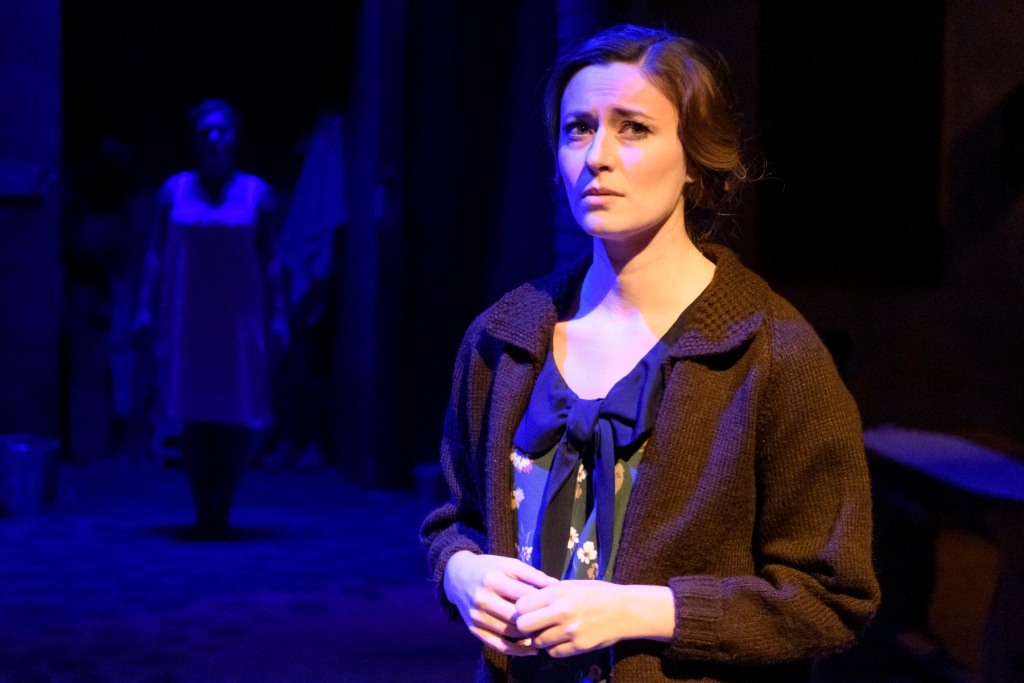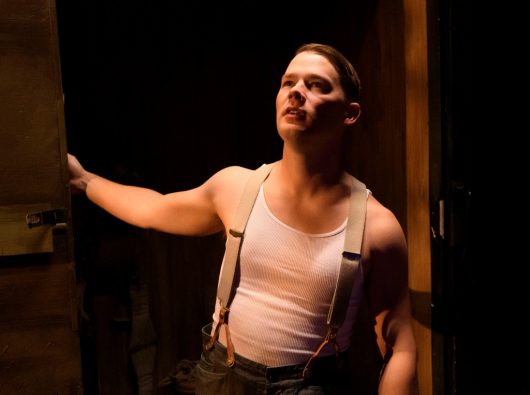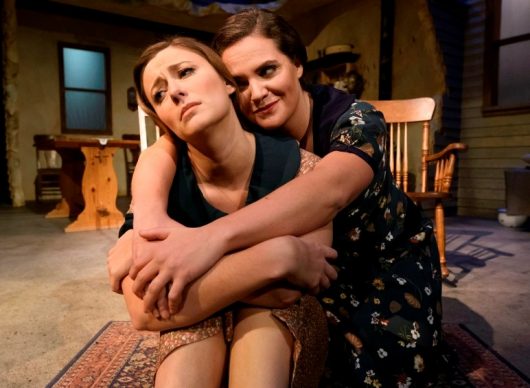Hannah Moscovitch birth control drama a wrenching reality show
Posted on November 16, 2018 By Colin MacLean Entertainment, entertainment, Front Slider, Theatre
 The title of What a Young Wife Ought to Know may read like one of those bogus pseudo-righteous early 20th Century self-help pamphlets given to prospective brides.
The title of What a Young Wife Ought to Know may read like one of those bogus pseudo-righteous early 20th Century self-help pamphlets given to prospective brides.
In the hands of playwright Hannah Moscovitch, the latest Theatre Network play is anything but a tract against “unnatural means” (read: birth control) to prevent having babies. It is a wrenching look at two very vulnerable people trying to carve out a life amidst the extreme poverty of Ottawa in the early years of the 20th century. The world in which they find themselves is racist, socially conservative and has little time for two poverty-stricken Irish immigrants.
The play runs until Dec. 2 at the Roxy on Gateway.
 Some of us who attend this play will have personal memories of the times (not so long ago) when birth control was illegal and proper young ladies never talked of sex. The only birth control method acceptable was “abstinence” – and we all know how well that one works. Or as one character suggests, “Separate beds and a lot of gardening.”
Some of us who attend this play will have personal memories of the times (not so long ago) when birth control was illegal and proper young ladies never talked of sex. The only birth control method acceptable was “abstinence” – and we all know how well that one works. Or as one character suggests, “Separate beds and a lot of gardening.”
Moscovitch, who is fast establishing herself as a major voice in Canadian Theatre, bases her tale on two books published before birth control became acceptable, Dear Doctor Scopes and Maternity: Letters From Working Women, both collections of letters sent to the authors who were well-known advocates for birth control.
This is pretty serious stuff, and the play certainly establishes where it stands, but Moscovitch (responsible for such works as East of Berlin, The Russian Play and This is War) is too canny a playwright to launch a diatribe. There is humour and humanity as these two innocents find themselves lost in a world of poverty – denied the expression of love they feel because of the fear of continuous pregnancy. The work is given a taut, sympathetic production from director Marianne Copithorne.
 We soon learn that all Sophie (Merran Carr-Wiggin) knows about sex came from her sister Alma (Bobbi Goddard), whose simplistic explanation for an extremely complex relationship is, “When you kiss a man lying down, you have a child. So don’t lie down.”
We soon learn that all Sophie (Merran Carr-Wiggin) knows about sex came from her sister Alma (Bobbi Goddard), whose simplistic explanation for an extremely complex relationship is, “When you kiss a man lying down, you have a child. So don’t lie down.”
We also learn that Alma dies. Guileless, but adventureous, she followed her forbidden desires and found herself pregnant. Alma begs Sophie to “scrape it out” – and dies in the process when she tries it alone. Forthrightly and easily, Sophie keeps turning to the audience for help in understanding ventolin inhaler boots what happened – and why.
“Ladies,” she pleads, “You’ve come by it, have you? Can I ask you – do you tell your husbands?” She only knows that what she did was “a terrible sin.”
Sophie develops a relationship with Jonny (Cole Humeny), the boy who made her sister pregnant, and the two begin to make tentative movements toward love and all that entails. But life is hard, the fates unkind and the children keep coming. A doctor tells her, “You must not have any more children.” At one point we find her in great pain. On the suggestion of a friend, she has spread her sexual apparatus with cocoa butter and tannic acid. The two attempt congress but the pain overcomes them. Helplessly, after her third pregnancy, Jonny leaves the house each evening, finally blurting out, “I get so scared of my desire I don’t dare look at you.”
What a stand-put performance from Carr-Wiggin. Lost at first, the performer carries through her wrenching tale in a most believable manner. Her Sophie is capable of deep grief, pain and incomprehension. At the beginning she’s vulnerable and open but, showing an impressive range, her tender but torrid sex scenes with Humeny graphically illustrate the call of the wild (and a maturing woman). At the end, Sophie, sustained by her love, finds a degree of acceptance and, even, hope.
Humeny is indeed studly as Jonny. You can see why the local maidens are swooning over him. He’s a loving husband and tries to do what he can for his wife in an uncaring world. Finally he, too, goes through a kind of awakening. Carr-Wiggin and Goddard establish a solid sisterly relationship on both sides of the grave.
Through bang-on accents, body movement and an intense empathetic understanding of character the three inhabit their roles.
Darrin Hagen’s lonely fiddle and wailing solo flute enhance the feeling of dislocation.
This is a play inspired by real people and real stories. The knowledge of the unnecessary pain and suffering of our Grandmothers not so many years ago is very much in the charged air created by Moscovitch’s words. Gripped by the reality of it all, and the power of this affirming and affecting production, the audience on opening night responded with rapt attention throughout the whole 90 minutes.
Photos by Ian Jackson











